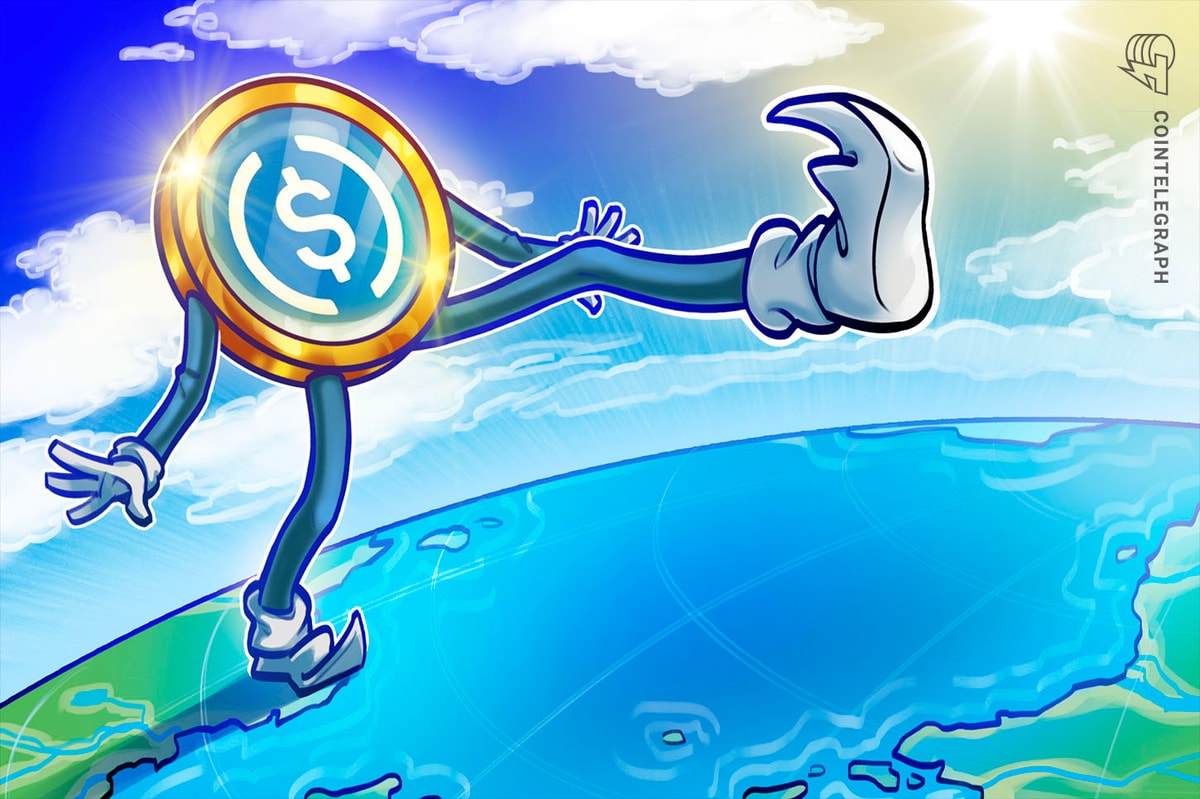I agree with Kao’s positions here.
Kao continued to elaborate on how these interventions by central banks are ultimately futile because, as the Fed continues to hike interest rates, foreign central banks simply only succeed in burning through reserves while also debasing their local currencies. Kao also briefly touched on a concern with significant levels of corporate debt around the world.
China Lorenz chimed in with the addition that the U.S. and Denmark are really the only jurisdictions that have access to 30-year fixed rate mortgages, with the rest of the world tending to employ floating-rate mortgages or instruments that institute fixed rates for a brief period, later resetting to a market rate.
Lorenz went on, “…with rising rates we’re actually going to be crimping spending a lot around the world.”
And Lorenz followed up to state that, “The housing market is also a big problem in China right now… but that’s kind of the tip of the iceberg for the problems…”
He went on, referring to a report from Anne Stevenson-Yang of J Capital, where he said that she details that the 65 largest real estate developers in China owe about 6.3 trillion Chinese Yuan (CNY) in debt (about $885.5 billion). However, it gets worse when looking at the local governments; they owe 34.8 trillion CNY (about $4.779 trillion) with a hard right hook coming, amounting to an additional 40 trillion CNY ($5.622 trillion) or more in debt, wrapped up in “local financing vehicles.” This is supposedly leading to local governments getting squeezed by China’s collapse in its real estate markets, while seeing reductions in production rates thanks to President Xi’s “Zero Covid” policy, ultimately suggesting that the Chinese have abandoned trying to support the CNY against USD, contributing to the power vacuum in USD.
Bank Reserves Contributing to this very complex relationship, Lorenz re-entered the conversation by bringing up the issue of bank reserves. Following the events of the 2008 Global Financial Crisis, U.S. banks have been required to maintain higher reserves in the aim of protecting bank solvency, but also preventing those funds from being circulated within the real economy, including investments. One argument could be made that this could be helping to keep inflation muted. According to Bianco, bank deposits have seen reallocations to money market funds to capture a yield with the reverse repurchase agreement (RRP) facility that is 0.55% higher than the yield on treasury bills. This ultimately results in a drain on bank reserves, and suggested to Lorenz that a furthering of the dollar liquidity crisis is likely, meaning that the USD continues to suck up purchasing power — remember that shortages in supply result in increases in price.
Conclusion All of this basically adds up to the USD gaining rapid and potent strength against nearly all other national currencies (except perhaps the Russian ruble), and resulting in complete destruction of foreign markets, while also disincentivizing investment in nearly any other financial vehicle or asset.
Now, For What I Did Not Hear I very much suspect that I am wrong here, and that I am misremembering (or misinterpreting) what I have witnessed over the past two years.
But I was personally surprised to hear zero discussion around the game theory that has been occurring between the Fed and the European Central Bank (ECB), in league with the World Economic Forum (WEF), around what I have perceived as language during interviews attempting to suggest that the Fed needs to print more money in order to support the economies of the world. This support would suggest an attempt to maintain the balance of power between the opposing fiat currencies by printing USD in order to offset the other currencies being debased.
Now, we know what has played out since, but the game theory still remains; the ECB’s decisions have resulted in significant weakening of the European Union, leading to the weakness in the euro, as well as weakening relations between the European nations. In my opinion, the ECB and WEF have signaled aggressive support and desire for developments of central bank digital currencies (CBDCs) as well as for more authoritarian policy measures of control for their constituents (what I see as vaccine passports and attempts at seizing lands held by their farmers, for starters). Over these past two years, I believe that Jerome Powell of the Federal Reserve had been providing aggressive resistance to the U.S.’s development of a CBDC, while the White House and Janet Yellen have ramped up pressures on the Fed to work on producing one, with Powell’s aversion to development of a CBDC seeming to wane in recent months against pressures from the Biden administration (I’m including Yellen in this as she has, in my opinion, been a clear extension of the White House).
It makes sense to me that the Fed would be hesitant to develop a CBDC, aside from being hesitant to employ any technology that is not understood, with the reasoning being that the U.S.’s major commercial banks share in ownership of the Federal Reserve System; a CBDC would completely destroy the function that commercial banks serve in providing a buffer between fiscal and monetary policy and the economic activity of average citizens and businesses. Which is precisely why, in my humble opinion, Yellen wants production of a CBDC; in order to gain control over economic activity from top to bottom, as well as to gain the ability to violate every citizens’ rights to privacy from the prying eyes of the government. Obviously, government entities can acquire this information today anyway, however, the bureaucracy we have currently can still serve as points of friction to acquiring said information, providing a veil of protection for the American citizen (although a potentially weak veil).
What this ultimately amounts to is; one, a furthering of the currency war that has been ensuing since the start of the pandemic, largely going underappreciated as the world has been distracted with the hot war occurring within Ukraine, and two, an attempt at further destruction of individual rights and freedoms both within, and outside of, the United States. China seems to be the furthest along in the world with regards to development of a sovereign power’s CBDC, and its implementation is much easier for it; it has had its social credit score system (SCS) active for multiple years now , making integration of such an authoritarian wet dream much easier, as the invasion of privacy and manipulation of the populace via the SCS is providing a foot in the door.
The reason I’m surprised that I did not hear this make it into discussion is that this adds a very, very important dynamic to the game theory of the decision making behind the Fed and Powell. If Powell understands the importance of maintaining the separation of central and commercial banks (which I believe he does), and if understands the importance of maintaining USD hegemony with regards to the U.S.’s power over foreign influence (which I believe he does), and he understands the desires for bad actors to have such perverse control over a population’s choices and economic activity via a CBDC (which I believe he might), he would therefore understand how important it is for the Fed to not only resist the implementation of a CBDC but he would also understand that, in order to protect freedom (both domestically and abroad), that this ideology of proliferation of freedom would require both an aversion to CBDC implementation and a subsequent destruction of competition against the USD.
It’s also important to understand that the U.S. is not necessarily concerned with the USD gaining too much power because we largely import the majority of our goods — we export USD. In my opinion, what follows is that the U.S. utilizes the crescendo of this power vacuum in an attempt to gobble up and consolidate the globe’s resources and build out the necessary infrastructure to expand our capabilities, returning the U.S. as a producer of high quality goods.
This Is Where I May Lose You This therefore opens up a real opportunity for the U.S. to further its power… with the official adoption of bitcoin. Very few discuss this, and even fewer may recall, but the FDIC went around probing for information and comment in its exploration of how banks could hold “crypto ” assets on their balance sheets. When these entities say “crypto ,” they more often than not mean bitcoin — the problem is that the general populace’s ignorance of Bitcoin’s operations cause them to see bitcoin as “risky” when aligning with the asset, as far as public relations are concerned. What’s even more interesting is that we have not heard a peep out of them since… leading me to believe that my thesis may be more likely to be correct than not.
If my reading of Powell’s situation were correct, and this all were to play out, the U.S. would be placed in a very powerful position. The U.S. is also incentivized to follow this strategy as our gold reserves have been dramatically depleted since World War II , with China and Russia both holding signficant coffers of the precious metal. Then there’s the fact that bitcoin is still very early in its adoption with regards to utilization across the globe and institutional interest only just beginning.
If the U.S. wants to avoid going down in history books as just another Roman Empire, it would behoove it to take these things very, very seriously. But, and this is the most important aspect to consider,I assure you that I have likely misread the environment.
Additional Resources This is a guest post by Mike Hobart. Opinions expressed are entirely their own and do not necessarily reflect those of BTC Inc or Bitcoin Magazine.









 Bitcoin
Bitcoin  Ethereum
Ethereum  Tether
Tether  XRP
XRP  Solana
Solana  USDC
USDC  Dogecoin
Dogecoin  Cardano
Cardano  TRON
TRON  Lido Staked Ether
Lido Staked Ether  Wrapped Bitcoin
Wrapped Bitcoin  Toncoin
Toncoin  LEO Token
LEO Token  Chainlink
Chainlink  Stellar
Stellar  USDS
USDS  Wrapped stETH
Wrapped stETH  Sui
Sui  Avalanche
Avalanche  Shiba Inu
Shiba Inu  Hedera
Hedera  Litecoin
Litecoin  Polkadot
Polkadot  MANTRA
MANTRA  Bitcoin Cash
Bitcoin Cash  Bitget Token
Bitget Token  WETH
WETH  Ethena USDe
Ethena USDe  Binance Bridged USDT (BNB Smart Chain)
Binance Bridged USDT (BNB Smart Chain)  Pi Network
Pi Network  Hyperliquid
Hyperliquid  Wrapped eETH
Wrapped eETH  WhiteBIT Coin
WhiteBIT Coin  Monero
Monero  Uniswap
Uniswap  Dai
Dai  Aptos
Aptos  NEAR Protocol
NEAR Protocol  Pepe
Pepe  sUSDS
sUSDS  OKB
OKB  Cronos
Cronos  Coinbase Wrapped BTC
Coinbase Wrapped BTC  Gate
Gate  Tokenize Xchange
Tokenize Xchange  Mantle
Mantle  Ondo
Ondo  Internet Computer
Internet Computer